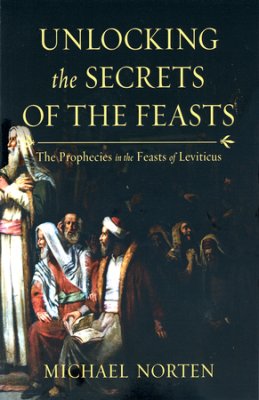Yom Kippur, the most significant holy day in Judaism, begins tonight and runs through sundown tomorrow. Jews observe this event with prayer and repentance, much as the Old Testament Israelites did. It was established during the time of Moses as the Day of Atonement, and is described in Leviticus 16: “This is to be a lasting ordinance for you: Atonement is to be made once a year for all the sins of the Israelites.”
If you’re not familiar with the biblical Day of Atonement, take a few minutes to read about it. The account is full of a lot of “Old Testament language” about priests, sacrifices, offerings, and (literal) scapegoats—things that might feel foreign to modern Christians. But in describing the process by which God granted the people of Israel forgiveness for their sins (through an annual ceremony of sacrifice), it very directly foreshadows the manner in which Jesus Christ would one day sacrifice himself for our sins.
Sign up to get the Know the Bible free email lesson series from Bible Gateway.
A note from the Reformation Study Bible on Bible Gateway offers a Christ-centered context for the Day of Atonement:
For the high priest, the most important aspects of the ceremony were his entry into the Most Holy Place with the blood of the sin offerings and the dispatch of the scapegoat into the wilderness. These actions atoned for the sins of repentant Israelites….
The scapegoat ceremony was also unique to this day. By placing his hands on the goat’s head and confessing the nation’s sins, the high priest transferred those sins to the goat. The goat then symbolically carried the people’s sins away into the wilderness. Christians have long regarded the scapegoat as a type of Christ. The New Testament makes many comparisons between the Day of Atonement and the death of Christ (Heb. 9:6–28; 13:11–13). That Christ was delivered to the Gentiles and killed outside the walls of Jerusalem indicated that He was sent “outside the camp” like the scapegoat of old.
Christians today don’t observe the system of Jewish holy days and feasts established in ancient Israel. But the Day of Atonement is an appropriate time to reflect on the weight of sin and guilt in our lives—and the merciful God who washes it away.
Access more than 50 renowned reference works to study Scripture with confidence and convenience when you become a member of Bible Gateway Plus. Try it right now!
The post The Day of Atonement: Yom Kippur appeared first on Bible Gateway Blog.












